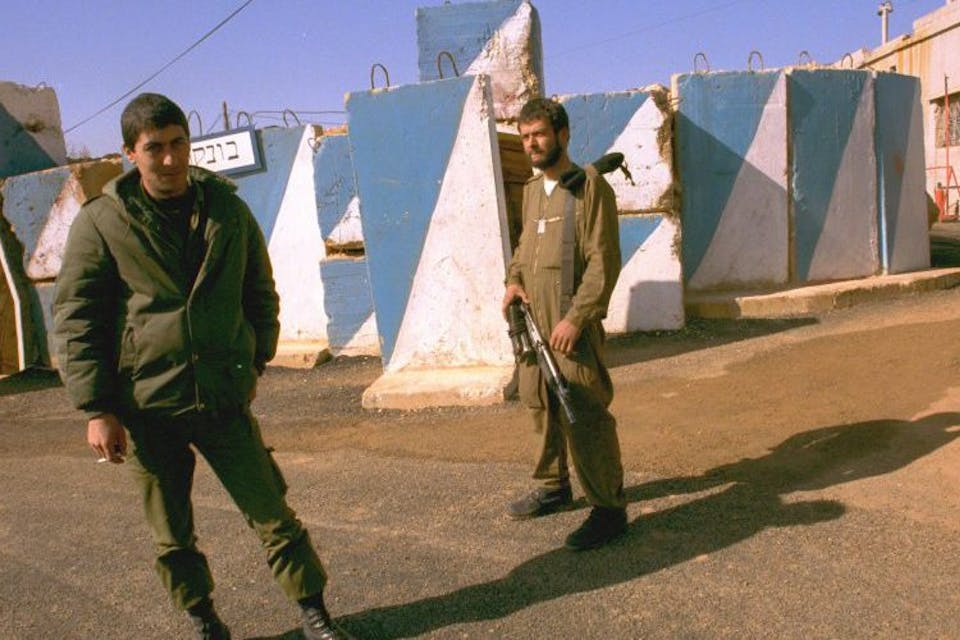
July 20, 2016
Remembering Israel’s Forgotten War
Matti Friedman's Pumpkinflowers restores the honor of Israeli soldiers who fought a ruthless enemy in a dress rehearsal for the mayhem and carnage to come.
Israel’s eighteen-year-long incursion into southern Lebanon, launched in 1982 to put an end to the relentless attacks on northern Israel by the PLO, is hardly among the most distinguished ventures of the Jewish state. Its initial phase ended a year later with a unilateral IDF withdrawal to a strip of territory in the southernmost part of the country, which Israel continued to hold in conjunction with local allies. Although this “security zone,” as it came to be called, succeeded in protecting the Galilee from terrorist infiltration and mortar fire, it itself remained a target of sustained attack until Prime Minister Ehud Barak abruptly evacuated it in 2000. For most of that time, Israel’s main opponent was Hizballah, a guerrilla force made up not of Palestinians but of Lebanese Shiites sponsored mainly by Iran.
This last, lengthy phase of the conflict is the subject of Pumpkinflowers, Matti Friedman’s illuminating memoir-cum-history. Friedman—Canadian by birth, Israeli by citizenship, journalist by trade (his previous book, The Aleppo Codex, won deserved acclaim)—served in the security zone for several years in the late 1990s. He recounts the war both in the first person, based largely on his own service, and in the third person, telling the stories not only of the soldiers who preceded him there but also of the grieving Israeli mothers who ultimately played an outsized role in bringing the IDF’s presence in southern Lebanon to its precipitous end.
Ably balancing his smaller and larger stories of the war, Friedman uses as his backdrop “the Pumpkin,” a fortified outpost, perched above a riverbed on the outskirts of the south Lebanese town of Nabatieh, in which he served. (“Flowers” is the IDF term for wounded soldiers.) He relates those stories with gripping intensity, deploying a vividness and a mastery of language that place Pumpkinflowers in the company of the finest literary depictions of modern war. In so doing, he also restores a measure of humanity, heroism, and perspective to what many Israelis today regard as a pointless war of attrition: a mindless and unresolved struggle that claimed hundreds of lives without accomplishing much.